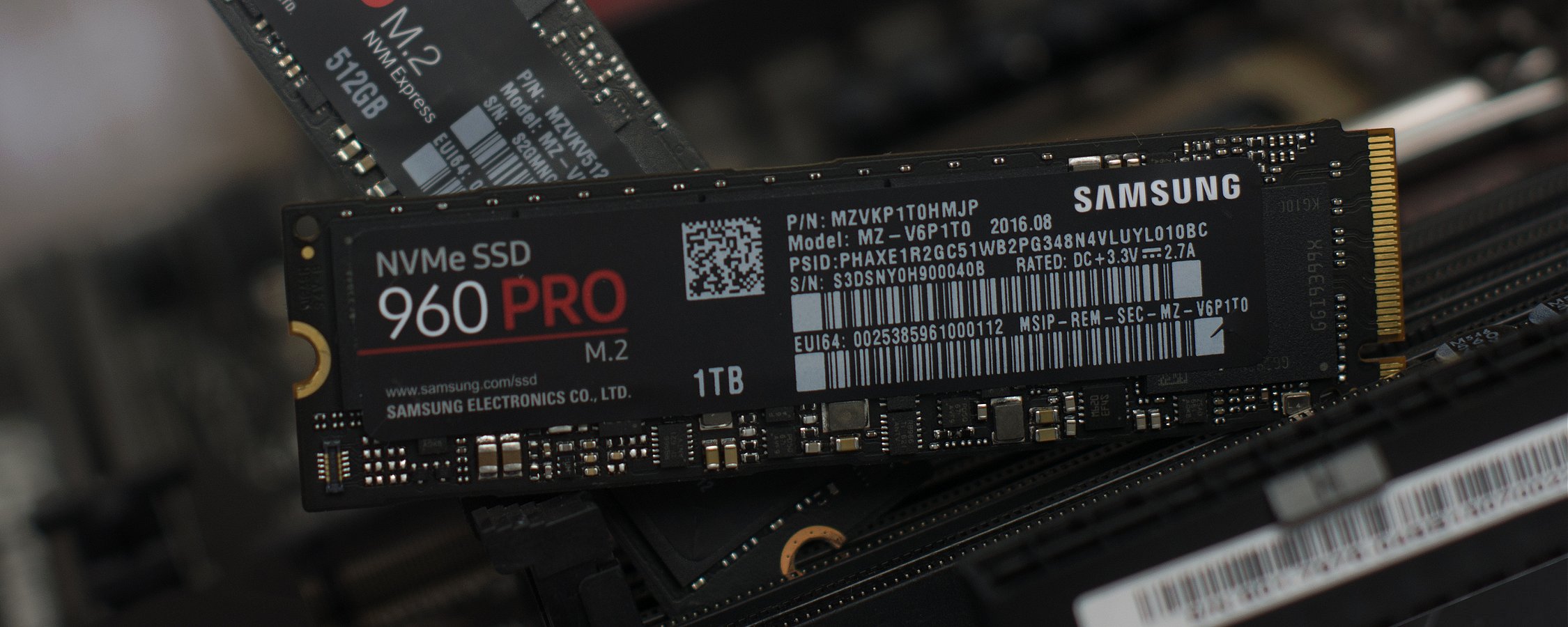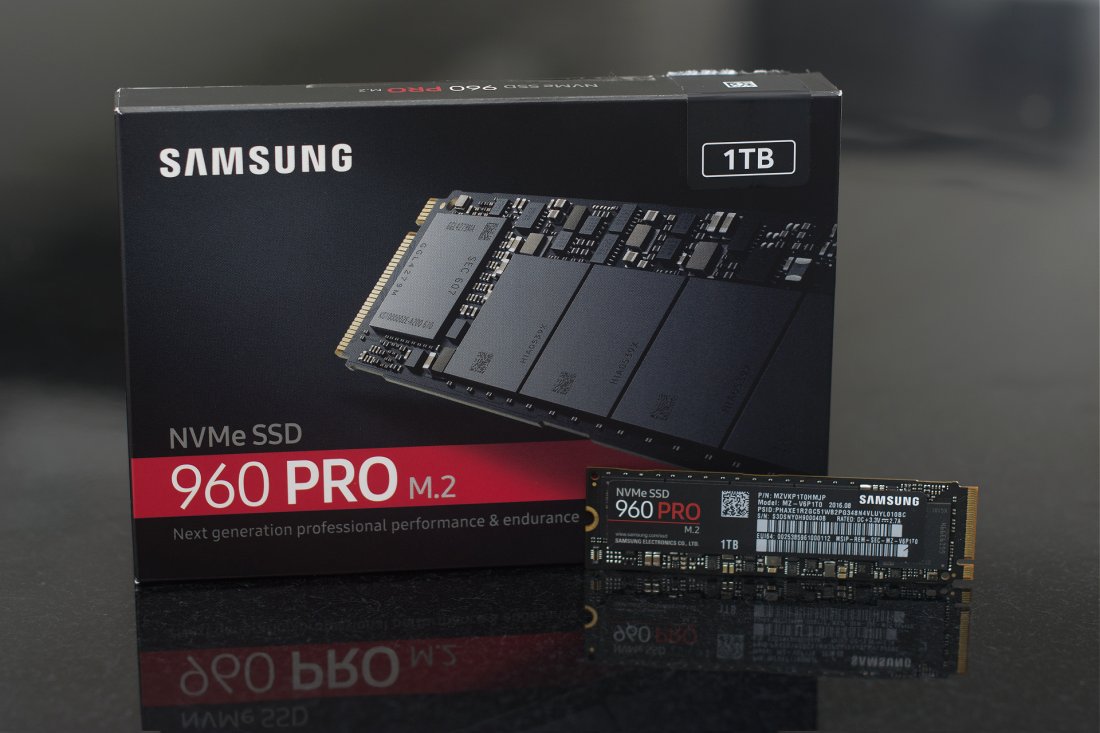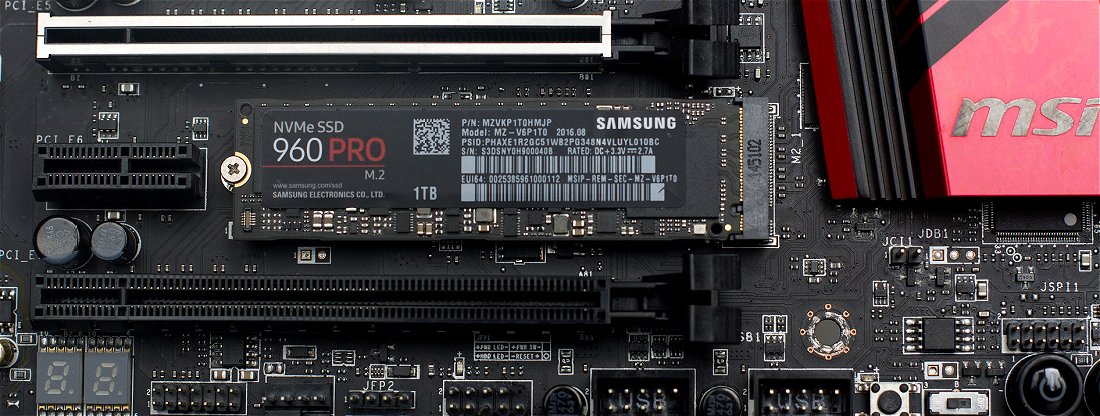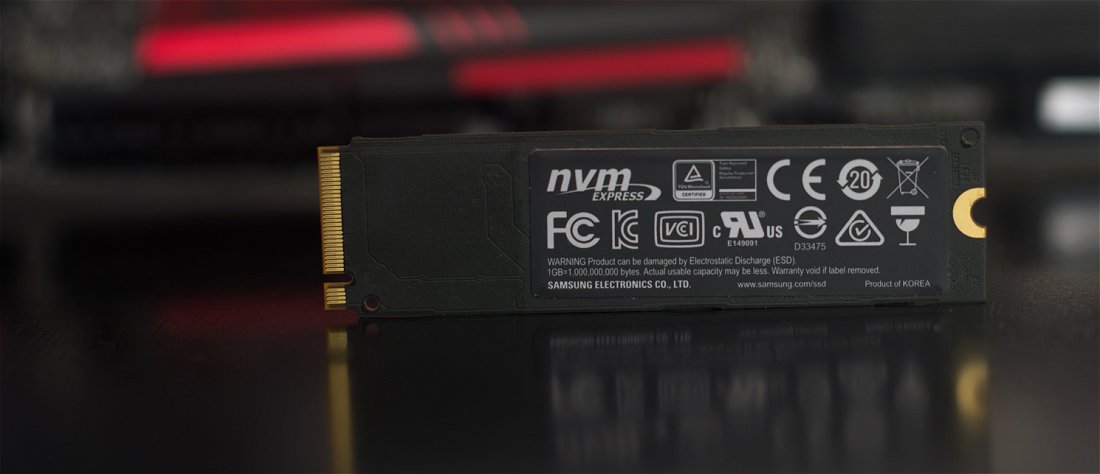Announced last month during the company's annual SSD Global Summit, Samsung's next generation solid state drives are poised to become must-haves among enthusiasts. The 960 Pro that we are reviewing today succeeds what was already a fast drive with last year's award-winning 950 Pro.
Meanwhile, the mainstream-bound 960 Evo is being positioned against the likes of Intel's SSD 600p Series – which shouldn't be too hard to beat.
Although we're excited to be testing the 960 Pro, many of the technologies that make this product special appeared on the OEM channel earlier this year when Samsung released the SM961 (MLC) and PM961 (TLC) drives. Both of those drives pack the company's "Polaris" SSD controller which brings a massive boost in performance courtesy of the PCIe 3.0 x4 interface, NVMe protocol, and the use of Samsung's latest V-NAND memory.
Likewise, the 960 Pro and 960 Evo rely on Samsung's Polaris controller and third-generation 48-layer V-NAND, with the former featuring MLC memory and the latter having TLC.
Mind you, Samsung hasn't simply rebranded its OEM drives for the retail channel as the 960 Pro series comes in a 2TB capacity and the retail models boast slightly greater read and write performance.
The 960 Pro is offered in 512GB, 1TB, and 2TB sizes that deliver peak sequential read and write transfer speeds of 3,500MB/s and 2,100MB/s with random read and write IOPS of up to 440,000 and 360,000. According to Samsung, that makes it the fastest M.2 NVMe SSD in the world.
Samsung tells us that the 2TB drive will come with a five-year warranty and coverage for up to 1.2 petabytes written, whichever occurs first, while the 1TB model is good for 800 terabytes written and 400 terabytes for the 512GB model, both of which are backed by the same five-year warranty.
The 960 Evo is no slouch, either. With Samsung's new Intelligent TurboWrite technology, the drive is good for sequential read and write speeds of up to 3,200MB/s and 1,900MB/s, respectively. Random read speeds top out at up to 380,000 IOPS while random writes can hit 360,000 IOPS, we're told. It'll be offered in 250GB, 500GB and 1TB capacities with the largest affording a three-year warranty and up 400 terabytes written.
With that, let's take a closer look at the 960 Pro 1TB...
80mm of Fury!
As just mentioned, the SSD 960 Pro comes in three capacities: the smallest 512GB model has been priced at $329 for a cost of $0.64 per gigabyte, the 1TB model that we have costs $629 which works out to be $0.61 per gigabyte, and the 2TB model will set you back $1,299 or $0.63 per gigabyte.
The 2TB model is a bit of a special animal as it features advanced packaging technology known as 'package on package'. With real estate at a premium here, Samsung has innovated by stacking DRAM on top of the controller to free up PCB space for a total of four NAND packages.
Other than its high cost per gigabyte, last year's 950 Pro faced an issue with heat. It tended to run a little too hot under heavy load, forcing the controller to scale back which ultimately reduced performance.
Samsung has taken several measures to reduce the regularity of thermal throttling with the 960 Pro series. One such step was to include a small copper film heatspreader on the back side which is estimated by Samsung to improve thermal performance by around 30%. Improved power efficiency also helps address this issue and is probably the biggest factor at play here.
These things combined should see the 960 Pro last around 50% longer under load before throttling is seen. Lasting 50% longer is great, but it's also worth noting that in this time the 960 Pro should be able to transfer almost twice as much data, so the chances of it throttling ought to be greatly diminished.
Samsung claims that under typical load the 2TB drive will consume 5.8 watts, 5.3 watts for the 1TB model and 5.1 watts for the 512GB model. Those are similar ratings to the 950 Pro series, though we are of course talking about a faster drive here.
All three versions of the 960 Pro measure only 80mm long and this is hugely impressive in the case of the 2TB model. The drives weigh between 8.3 and 9.0 grams with the 2TB variant being the heaviest and they've all been awarded the same sequential read/write rating of 3.5GB/s and 2.1GB/s.
That said, the drives do vary when looking at input/output operations per second. The 512GB model is good for 333,000 IOPS read and write while the 1TB and 2TB models have been upgraded to 440,000 IOPS read and 360,000 IOPS write.
Hardware-based AES 256-bit data encryption along with TCG Opal should keep your data secure while features such as TRIM, garbage collection and S.M.A.R.T are also included.





